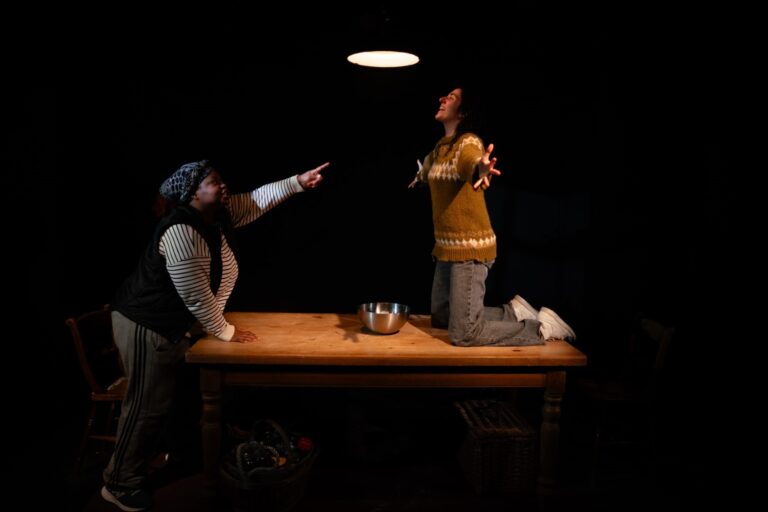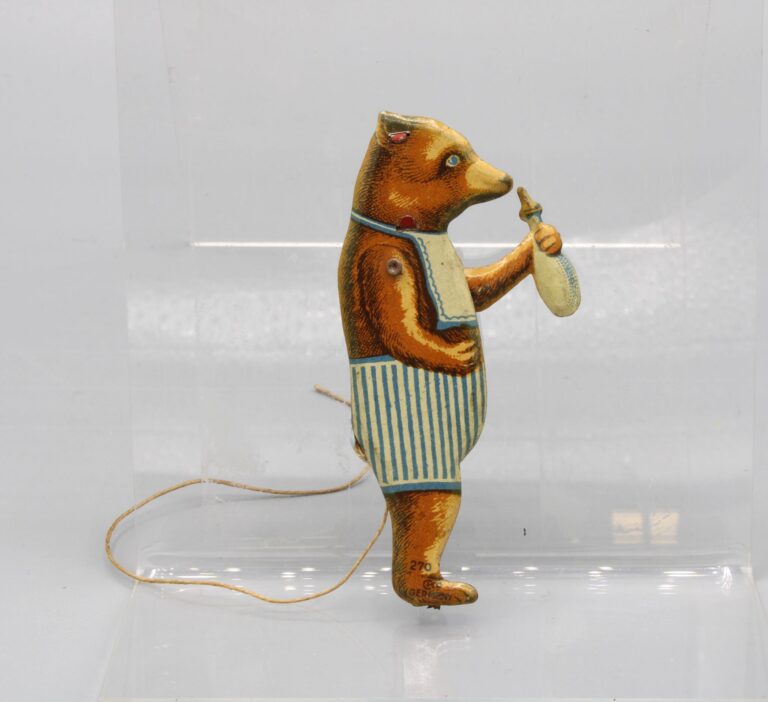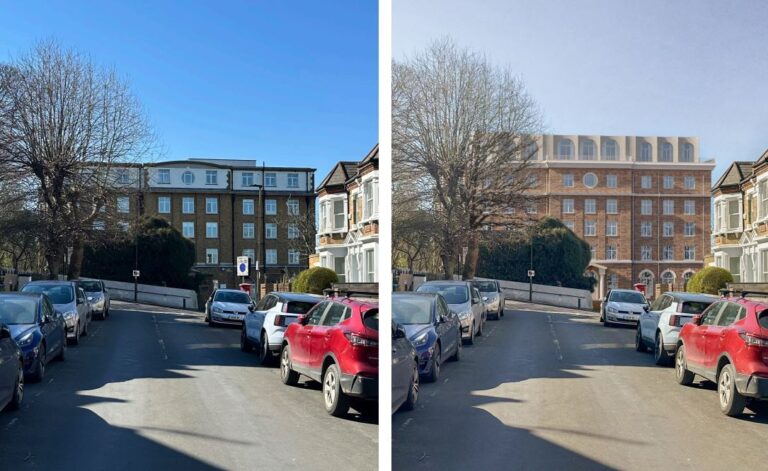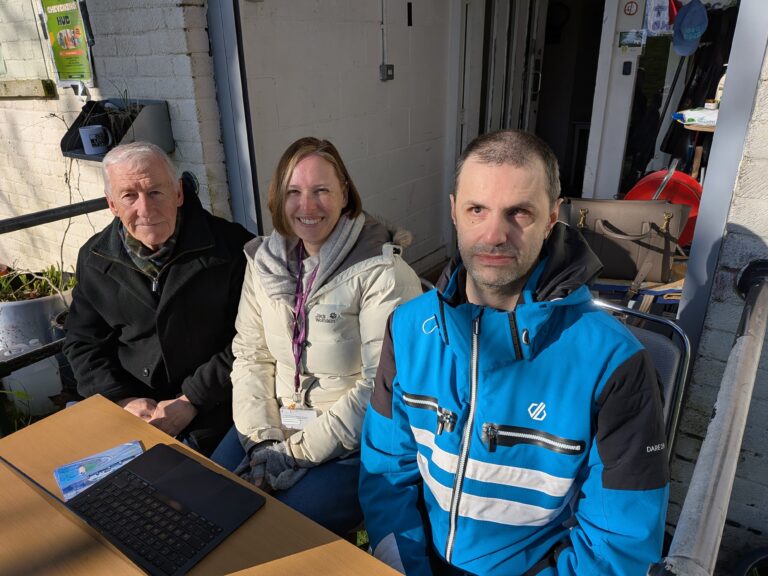All is revealed in Rotherhithe local Brian Griffin’s new book Black Country Dada 1969-1990.

The photographer was born in the Black Country to a family that had, for generations, been human fodder for local factories, something that Brian vowed he would never be. But that is easier said than done.
Brian didn’t set out to be a photographer. “It was decided for me,” he claims. In his quest to avoid a life that had killed off many of his family at an early age he went to “a good school” and then got an apprenticeship as a pipework engineering estimator. Alas, while semi-avoiding getting his hands dirty in amongst the factory grease and grime, Brian was suddenly left broken-hearted by his girlfriend. It was a sad time. “I felt I had to get out of this place and have nothing to do with it again.” Drastic measures were needed so he escaped through something that he had enjoyed as a hobby and took up a photography course at Manchester College of Art and Design. “I saw that as a way to get out quick,” he recalls. Moving to Manchester was his first time away from home in the Midlands. “I remember thinking ‘what have I done? I don’t even like photography that much!’”
The first thing Brian Griffin photographed on the first morning of the course was an egg. Such are the beginnings of the man the Guardian named Photographer of the Decade in 1989. On graduating with a First, Brian returned to the steelworks to raise money for moving to London. Eventually, with three student colleagues, they found a flat in Wimbledon where a lot of cannabis was smoked.
After signing on the dole, “I knocked on every door in London to get a job but by September I was about to give up,” Brian remembers. It was then that he saw an ad for an assistant to Lester Bookbinder, a photographer Brian admired, so off he went with his portfolio. When Bookbinder saw his work he said, “you shouldn’t be an assistant, you should be a photographer” and directed Brian towards Roland Schenk, who also looked at the portfolio and remarked “you’re the new Robert Frank”, famous for his groundbreaking book The Americans.
So here’s Brian, just weeks out of college, being compared to legends. “I was terribly flattered,” he says 50 years later and now able to contain his excitement. The young graduate was given a job immediately and his career began on the “very bottom rung.” The first assignment he was given was at Convoys Wharf in Deptford.

But he still felt he had to find his own style so immersed himself in films at the BFI. He could relate silent German Expressionist Cinema to his Black Country childhood and in that genre he “began to understand the symbolism inherent… which I gradually introduced into my images.”
In a life lived behind a lens, Brian took photos for many magazines, shot numerous album covers and music videos. He says his career “just went up and up and up.” In fact, his list of sitters is an absolute who’s who of everyone. His Black Country dialect now pretty much hidden beneath half a century of London living, he drops names of mates without a hint of a boast: having a few beers with Lord Snowdon in the Blacksmiths Arms, sharing joints with Ian Dury at an awards ceremony or taking mushrooms with Martin Parr in the woods around Hebden Bridge. I could tell he has a quirky sense of fun and likes to make his own rules.
In 1980, Brian moved to Rotherhithe, into an old warehouse that became his studio, then further down Rotherhithe Street later on. “My work brought me down here and I liked it so I stayed,” he says. He tells of notorious parties and of setting out to know the locals so as not to be an outsider. Having grown up amongst factories, Brian knew he would be at home amongst people with similar backgrounds. He frequented the Mayflower and writes about the customers he made friends with in his latest book Black Country DADA 1969-1990: an autobiography in words and pictures of those years. “In the small bar, a collection of characters would gather, ranging from armed robbers to pickpockets.” He named Nick the Vic, from St Mary’s church, and a few other locals so I switched my recorder off for a while as we swapped tales.

1969 until 1990 were good years for Brian. He established himself as a freelance photographer and as the years rolled on he was given major commissions. His books and photographs won many awards, he exhibited around the world, had a cover on Time magazine, received an Honorary Doctorate, was given Professorships, and built a client list to make your eyes pop out.
But I found out about these achievements from reading his book -not from the interview, although he had ample opportunity to tell me. This is not modesty but coolness. Brian Griffin is cool and that comes from within. Plus, knocking about with some of the world’s finest for most of his life. Pushing him you get to hear about doing work for the Queen, meeting heads of industry and snapping major stars: Iggy Pop, Paul McCartney, Elvis Costello, Donald Sutherland… But he also doesn’t mind discussing the shoots that went wrong, such as having to photograph David Bailey and David Hockney or when the images for Star Wars were rejected.
Finishing off, Brian wanted to talk about Rotherhithe, his home for the majority of his life, and the people he has met and photographed, plus the Depeche Mode album cover he shot with them in the old Castrol building Downtown.
You can find these stories and much more in the book.
Having lived in Rotherhithe Street for 42 years, the photographer is now in the midst of shooting a project on the street.
Black Country DADA 1969-1990 is out now for £60, available online at www.briangriffin.co.uk

This article is brought to you by our sister publication The Bermondsey Biscuit and Rotherhithe Docker







